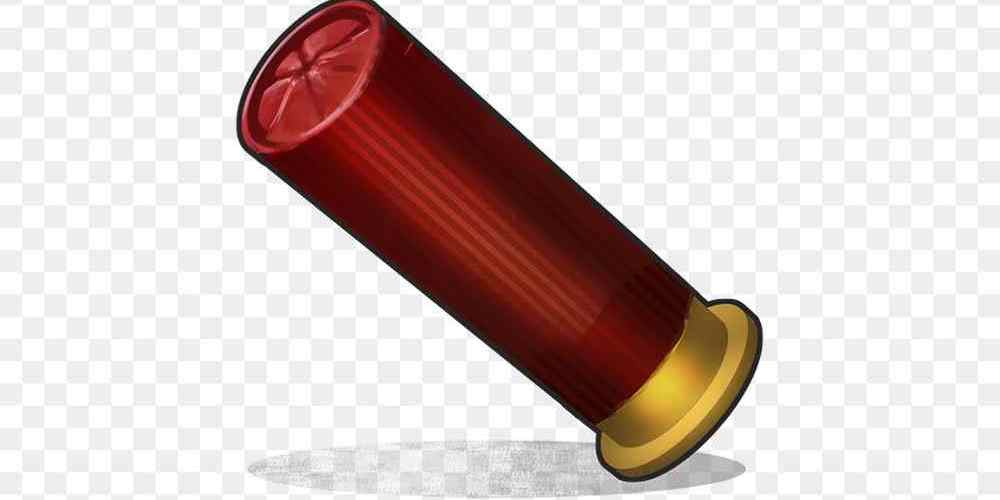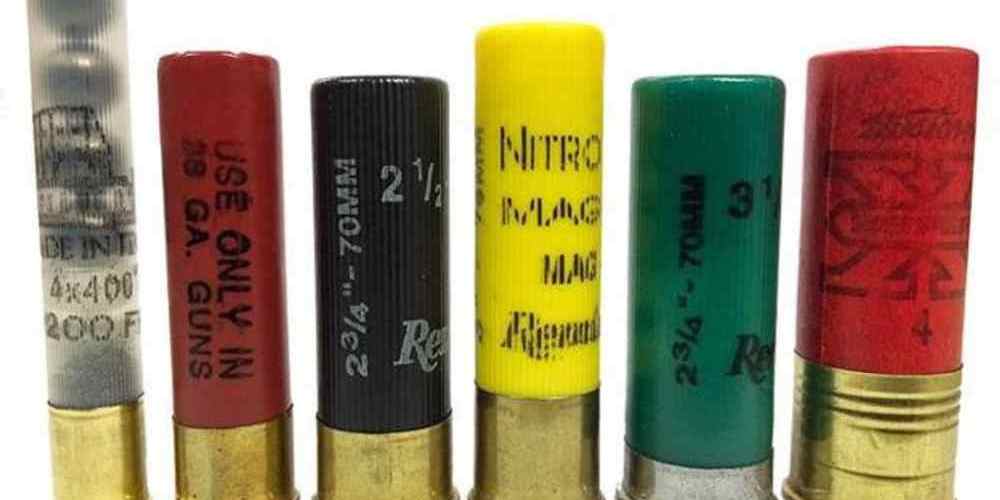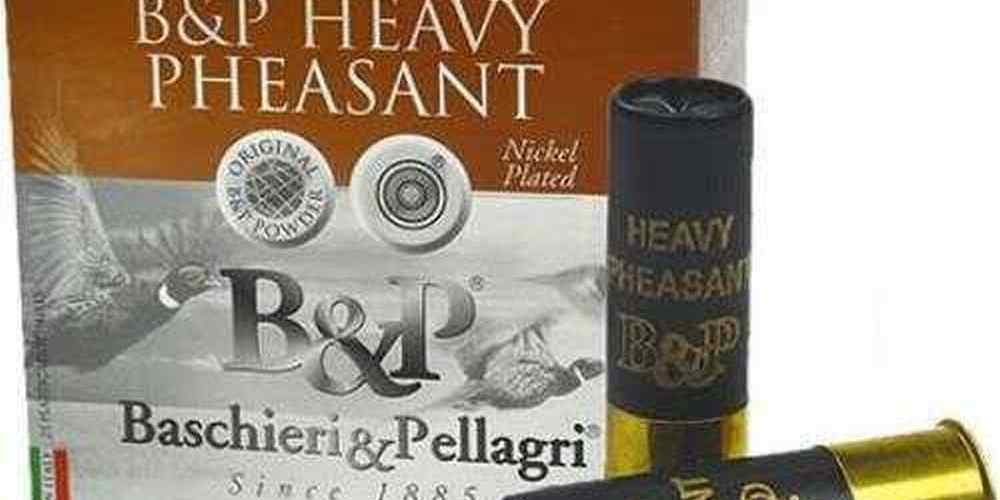“Respect nature, use shotgun ammunition ethically in hunting.”
Environmental Impact of Lead Shotgun Ammunition
Shotgun ammunition has long been a popular choice for hunters due to its effectiveness in taking down game. However, the use of lead shotgun ammunition has come under scrutiny in recent years due to its negative impact on the environment. Lead is a toxic substance that can leach into the soil and water, posing a threat to wildlife and human health. As responsible hunters, it is important to consider the ethical implications of using lead shotgun ammunition and explore alternative options that are more environmentally friendly.
One of the main concerns with lead shotgun ammunition is its potential to contaminate the environment. When lead pellets are fired from a shotgun, they can scatter over a wide area, making it difficult to clean up and remove from the environment. Over time, these lead pellets can accumulate in the soil and water, where they can be ingested by wildlife and pose a risk to their health. In addition, lead can also leach into the water supply, posing a threat to human health if consumed.
To address these concerns, many hunters are turning to alternative options such as steel or non-toxic shot for their shotgun ammunition. Steel shot is a popular choice for waterfowl hunting, as it is effective at taking down game and does not pose the same environmental risks as lead. Non-toxic shot, such as bismuth or tungsten, is also gaining popularity among hunters who are looking for a more environmentally friendly option. These alternatives may be more expensive than lead shot, but the long-term benefits to the environment far outweigh the cost.
In addition to the environmental impact of lead shotgun ammunition, there are also ethical considerations to take into account. As responsible hunters, it is our duty to minimize our impact on the environment and ensure the sustainability of wildlife populations. By using non-toxic shot, we can help protect the environment and ensure that future generations of hunters will have the opportunity to enjoy the sport.
Transitioning to non-toxic shot may require some adjustments in terms of shooting technique and equipment. Non-toxic shot tends to have different ballistic properties than lead shot, so it is important to practice with these alternatives to ensure accuracy and effectiveness in the field. Additionally, some older shotguns may not be compatible with non-toxic shot, so it may be necessary to invest in a new shotgun or have your existing shotgun modified to accommodate these alternatives.
Overall, the ethical use of shotgun ammunition in hunting is an important consideration for all hunters. By choosing non-toxic shot over lead shot, we can help protect the environment and ensure the sustainability of wildlife populations for future generations. While the transition to non-toxic shot may require some adjustments, the long-term benefits far outweigh any challenges. As responsible hunters, it is our duty to prioritize the health and well-being of the environment and wildlife, and choosing non-toxic shot is a simple yet effective way to do so.
Alternatives to Lead Shotgun Ammunition
Shotgun ammunition is a crucial tool for hunters, providing the necessary firepower to take down game animals. However, the use of lead ammunition has come under scrutiny in recent years due to its harmful effects on the environment and wildlife. As a responsible hunter, it is important to consider alternative options that are both effective and ethical.
One of the most popular alternatives to lead shotgun ammunition is steel shot. Steel shot is made from steel pellets that are harder than lead, making them more effective at taking down game animals. Additionally, steel shot is non-toxic, which means it does not pose a risk to the environment or wildlife. While steel shot is a great alternative to lead ammunition, it does have some drawbacks. Steel shot is harder than lead, which means it can cause more damage to the meat of game animals. Additionally, steel shot is more expensive than lead ammunition, which can be a deterrent for some hunters.

Another alternative to lead shotgun ammunition is bismuth shot. Bismuth shot is made from bismuth pellets, which are softer than steel but harder than lead. This makes bismuth shot an effective option for hunting game animals without causing unnecessary harm. Bismuth shot is also non-toxic, making it a safe choice for the environment and wildlife. While bismuth shot is a great alternative to lead ammunition, it is also more expensive than steel shot. However, many hunters believe that the benefits of using bismuth shot outweigh the cost.
Tungsten shot is another alternative to lead shotgun ammunition that is gaining popularity among hunters. Tungsten shot is made from tungsten pellets, which are denser than lead and steel. This makes tungsten shot more effective at taking down game animals, even at longer distances. Tungsten shot is also non-toxic, making it a safe choice for the environment and wildlife. While tungsten shot is more expensive than steel and bismuth shot, many hunters believe that the superior performance of tungsten shot justifies the cost.
In addition to steel, bismuth, and tungsten shot, there are other alternatives to lead shotgun ammunition that hunters can consider. For example, some hunters choose to use copper shot, which is non-toxic and effective at taking down game animals. Copper shot is also more affordable than some of the other alternatives mentioned. Another option is nickel-plated shot, which is made from nickel-plated pellets that are non-toxic and effective at hunting game animals.
In conclusion, there are several alternatives to lead shotgun ammunition that hunters can consider. Steel, bismuth, tungsten, copper, and nickel-plated shot are all effective options that are non-toxic and safe for the environment and wildlife. While these alternatives may be more expensive than lead ammunition, many hunters believe that the benefits of using non-toxic shot outweigh the cost. As a responsible hunter, it is important to consider the ethical implications of using lead ammunition and explore alternative options that are both effective and environmentally friendly. By making informed choices about shotgun ammunition, hunters can help protect the environment and wildlife for future generations.
Regulations and Laws Regarding Shotgun Ammunition in Hunting
Shotguns are a popular choice among hunters for their versatility and effectiveness in taking down game. However, it is important for hunters to be aware of the regulations and laws regarding the use of shotgun ammunition in hunting to ensure ethical and responsible hunting practices.
One of the key regulations that hunters must adhere to is the type of ammunition that can be used in shotguns. Different states have different regulations regarding the size and type of shotgun ammunition that can be used for hunting. It is important for hunters to familiarize themselves with these regulations before heading out into the field.
In general, most states require hunters to use non-toxic shot when hunting waterfowl to prevent lead poisoning in these birds. Lead shot can be harmful to waterfowl if ingested, so it is important for hunters to use non-toxic alternatives such as steel, bismuth, or tungsten shot when hunting waterfowl.
When hunting upland game birds or small game, hunters may have more flexibility in the type of shotgun ammunition they can use. However, it is still important to be mindful of the environment and choose ammunition that will minimize the impact on wildlife and the ecosystem.
In addition to the type of ammunition, hunters must also be aware of the size of shot that is allowed for hunting different types of game. Using the correct size of shot is important for ensuring a clean and ethical kill. Using shot that is too small may result in wounded game that suffers needlessly, while using shot that is too large may damage more meat than necessary.
Hunters should also be aware of any restrictions on the use of certain types of ammunition, such as slugs or buckshot, in certain hunting areas. Some states may have specific regulations regarding the use of these types of ammunition to prevent overkill or damage to the environment.
It is also important for hunters to be mindful of the range at which they are shooting when using shotgun ammunition. Shotguns have a limited effective range, so hunters should be aware of their shooting abilities and only take shots that are within their range to ensure a clean and ethical kill.
Overall, the ethical use of shotgun ammunition in hunting is essential for ensuring the sustainability of wildlife populations and the preservation of the environment. By following regulations and laws regarding the type, size, and range of shotgun ammunition that can be used in hunting, hunters can enjoy their sport while also being responsible stewards of the land.
In conclusion, hunters should always prioritize ethical and responsible hunting practices when using shotgun ammunition. By following regulations and laws regarding the use of shotgun ammunition in hunting, hunters can ensure a clean and ethical kill while also protecting wildlife and the environment. Remember to always be mindful of the type, size, and range of shotgun ammunition that is allowed for hunting in your area, and always prioritize the well-being of the game and the ecosystem. Happy hunting!
Ethical Considerations When Using Shotgun Ammunition in Hunting
Shotguns are a popular choice among hunters for their versatility and effectiveness in taking down game. However, the use of shotgun ammunition raises ethical considerations that hunters must take into account when pursuing their sport.
One of the primary ethical considerations when using shotgun ammunition in hunting is the potential for excessive damage to the animal. Unlike rifles, which typically deliver a single, high-velocity projectile, shotguns fire a spread of pellets that can cause widespread tissue damage. This can result in a slower, more painful death for the animal, which goes against the ethical principle of minimizing suffering.
To mitigate this risk, hunters should carefully select the appropriate ammunition for the game they are hunting. Different types of shotgun ammunition, such as birdshot, buckshot, and slugs, are designed for specific purposes and have varying levels of penetration and stopping power. By choosing the right ammunition for the job, hunters can ensure a clean, ethical kill that minimizes suffering.
Another ethical consideration when using shotgun ammunition in hunting is the potential for collateral damage. Shotguns have a limited effective range and a wider spread than rifles, increasing the risk of stray pellets hitting unintended targets. This can pose a danger to other hunters, bystanders, and non-target animals in the area.
To prevent accidents and ensure the safety of all individuals involved, hunters should always be aware of their surroundings and only take shots when they have a clear line of sight to their target. Additionally, hunters should be mindful of the range and spread of their shotgun ammunition, adjusting their shooting distance and angle as needed to minimize the risk of stray pellets causing harm.
Furthermore, hunters should always follow ethical hunting practices when using shotgun ammunition. This includes respecting hunting regulations and seasons, obtaining the necessary permits and licenses, and practicing responsible firearm handling. By adhering to these guidelines, hunters can ensure that their use of shotgun ammunition is both legal and ethical.
In addition to ethical considerations related to the use of shotgun ammunition, hunters should also be mindful of the environmental impact of their sport. Lead shot, which is commonly used in shotgun ammunition, can pose a risk to wildlife and the ecosystem if not properly managed. Lead pellets left in the environment can be ingested by animals, leading to lead poisoning and other health issues.
To minimize the environmental impact of shotgun ammunition, hunters should consider using non-toxic alternatives, such as steel or bismuth shot. These materials are less harmful to wildlife and the environment, reducing the risk of lead contamination in the ecosystem. By making the switch to non-toxic ammunition, hunters can demonstrate their commitment to ethical and sustainable hunting practices.
In conclusion, the ethical use of shotgun ammunition in hunting requires careful consideration of the potential for excessive damage, collateral harm, and environmental impact. By selecting the appropriate ammunition, practicing responsible firearm handling, and choosing non-toxic alternatives, hunters can ensure that their use of shotgun ammunition is both effective and ethical. By following these guidelines, hunters can enjoy their sport while respecting the welfare of the animals they pursue and the environment in which they hunt.
The Importance of Proper Disposal of Shotgun Ammunition
Shotgun ammunition is a crucial tool for hunters, providing the necessary firepower to take down game animals. However, the ethical use of shotgun ammunition goes beyond just hitting your target. It also involves the proper disposal of spent shells and cartridges to minimize environmental impact and ensure the safety of wildlife and other individuals.
When hunting with a shotgun, it is essential to be mindful of where your spent shells land. Leaving them scattered on the ground can pose a danger to wildlife, as animals may mistake them for food or become entangled in them. Additionally, spent shells can leach harmful chemicals into the soil and water, contaminating the environment and potentially harming plants and animals.
To prevent these negative consequences, hunters should make an effort to collect their spent shells and dispose of them properly. This can be done by carrying a small bag or container to hold the spent shells until they can be disposed of in a designated waste receptacle. Some hunting areas may have specific guidelines for the disposal of ammunition, so it is important to familiarize yourself with these regulations before heading out into the field.
Proper disposal of shotgun ammunition is not only important for the environment but also for the safety of other individuals. Discarded shells left on the ground can be a hazard to hikers, campers, and other outdoor enthusiasts who may come across them unexpectedly. By taking the time to collect and dispose of your spent shells responsibly, you can help prevent accidents and injuries from occurring.
In addition to collecting and disposing of spent shells, hunters should also be mindful of the type of ammunition they are using. Lead shot, commonly used in shotgun ammunition, can be toxic to wildlife if ingested. To minimize the risk of lead poisoning in animals, hunters should consider using non-toxic alternatives such as steel or bismuth shot.
Non-toxic shot is not only safer for wildlife but also for the environment as a whole. Lead shot can accumulate in soil and water, posing a risk to plants, animals, and humans who may come into contact with it. By choosing non-toxic shot, hunters can help reduce the overall impact of their ammunition on the environment and promote a more sustainable approach to hunting.
In conclusion, the ethical use of shotgun ammunition in hunting extends beyond just hitting your target. Proper disposal of spent shells and cartridges is essential to minimize environmental impact, protect wildlife, and ensure the safety of other individuals. By collecting and disposing of spent shells responsibly and choosing non-toxic shot options, hunters can demonstrate their commitment to ethical hunting practices and contribute to the conservation of our natural resources.




